Navigating the complex terrain of migrant and migrant-solidarity organising
How can we organise more strategically in our activism and movement building? This training offers a space to reflect on questions like: How do we move from short-term action toward long-term strategy? How can we shift from fragmented and isolated efforts to ecosystemic approaches and alliance-building? How do we organise in ways that resist cultures of burnout and avoid reproducing patterns of domination? How does our social positionality shape the ways we organise, and how skillfully can we engage with those dynamics?
We will explore these questions through a collective and participatory learning environment, with space to apply insights to our own individual and organisational contexts.
In the current crisis of neoliberal politics and economy, migration policies and border regimes are increasingly shaped by fear, othering, and scapegoating. Organising as migrants—or in solidarity with migrants—can feel especially depleting and disempowering. On top of this, we face familiar movement-wide challenges: internal fragmentation, short-term or project-based thinking, and the limitations of our theories of change.
This training is designed to help us navigate the complex terrain of migrant and migrant-solidarity organising, taking into account our distinct roles and experiences in relation to the nation-state and the emotions that often accompany this work.
We will unpack these dynamics and together, co-develop tools and strategies to engage with them more intentionally and sustainably.
Key topics:
There are many different ways of thinking about organising within the ‘social change’ paradigm. Some of the conceptions we will be exploring are:
Community Organising: Aiming to build power within communities, focusing on addressing local issues and injustices. It emphasises leadership development, relationship-building, and collective action rooted in everyday experience.
Transformative Organising: A more expansive approach to organising that seeks not only to address immediate issues but also to transform underlying systems of power and oppression, and the economic, political, and social structures that perpetuate the status quo and injustice. Early thinking on this practice has been defined by US-based organisers in “Demand Everything: Lessons from the Transformative Organising Model”. Applications to the European context and the learnings and adaptations of this approach to organising are illustrated in “The power of Organising: Stories from Community Organising Campaigns Across Europe”.
Movement Building: A broader approach that goes beyond specific campaigns or issues to build a sustained, interconnected ecosystem of organisations and networks working toward social transformation. Key aspects of Movement Building focus on developing shared visions and narratives, building alliances and networks between organisations, and creating responsive and agile structures that can adapt to changing contexts.
We will explore ideas and practices related to:
Theories of Change: How change happens in the world. Understanding systems and complexity as well as power and influence in today’s increasingly volatile and uncertain conditions. Exploring how individuals and organisations contribute to change.
Approaches to Organising: Looking at different traditions and practises from Community and Transformative Organising to Movement Building.
The Role of the Organiser: Reflections on identity, positionality and aspects of inhabiting the ‘role’, as well as sharpening practical skills and tools.
Alliance building: Effective Organising (of whatever kind) is most successful when performed in resilient alliances. This course will explore the pathways to building strategic, meaningful, empowering relationships.
Resilience: Looking at ways to manage stress and build wellbeing, and weather the impacts of repression and suppression, so that they don’t undermine our organising efforts.
So the aims of the training are to:
Who is it aimed at?
Anyone with experience in socially engaged action addressing political and social justice issues, specifically in the area of migration and border violence. We embrace a broad definition of activism, including: Resistance – action preventing further damage to ecosystems and social justice; Renewal – action focused on developing and creating alternatives for healthier societies and communities; and Building Resilience – action supporting increased resilience in communities to weather the uncertain times ahead.
The course will be delivered in accessible, international English.
In the solidarity economy:
(See details of our approach to radical economics here)
Contact us
to apply

Location:
Margaret Amaka Ohia-Nowak is a racial justice activist, trainer and facilitator, scholar, and educator on racism and anti-racism in Poland with over 15 years of experience. Her approach to teaching is holistic, intersectional and decolonial. She uses cognitive and emotional learning, bodywork and somatic methods. Amaka has advocated and organized for Black, African and Afro-descendant communities in Poland. She is the founder of the Centre for Intersectional Justice in Poland, co-founder of the Alliance for Black Justice in Poland, which supports black communities and advocates for racial justice in the CEE region. She is an Assistant Professor at the Institute of Social Communication and Media Studies at the Marie Curie-Skłodowska University in Lublin, Poland, where her research focuses on race, racism and the portrayal of blackness in language and media discourse. She is a board member of the Polish Association of People of African Descent and a board member of the Black Europe Foundation. Additionally, Amaka is a member of the Decolonial Working Group at the Centre for Feminist Foreign Policy and a local connector for the Multitudes Foundation.
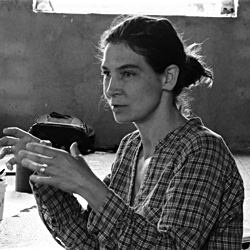
Location:
María worked for the Red Cross in community development, strengthening civil society, education, and food security in Latin America and Africa. Building on her studies in social psychology and international development, she studied Alternative Economics at Schumacher College, UK. This led her into work on organisational change with NGOs and grassroots movements. María specialises in complexity and participation applied to organisations: organisational structures and culture, emergent strategy, leadership amongst others. She co-founded The Eroles Project, a learning for action project and La Bolina, a systemic project looking at repopulation, inclusion and agroecology. María´s co-authored: Small is Important: Learnings from an integration and regeneration Project. Factores Clave para la Acción Reflexión Colaborativa, Enfoques y herramientas participativas en la cooperación al desarrollo, Activism and spirituality.
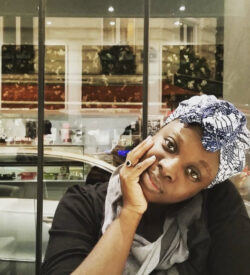
Location:
Binta wears many hats – educator, facilitator, organizer, activist, social entrepreneur, and mental health advocate – in support of community-led initiatives focused on social and climate justice. She has 10+ years experience working internationally on issues related to digital literacy, educational, social, and economic inclusion of marginalized communities, capacity and community building, and intercultural communication. In addition to organizing and working with anti-racist and feminist organizations in France, her current work focuses on helping movements structure and grow their impact, training youth leaders and activists in campaigning, community building and mobilization, and building networks of peer learning, support, and empowerment for marginalized communities.
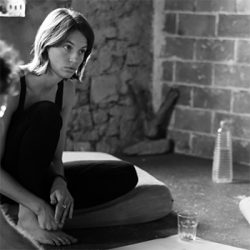
Location:
Ruth Cross is co-founder of Eroles Project – an international learning for action centre, and, Asociación La Bolina – a visionary intercultural initiative working to regenerate land and lives through creating social integration and sustainable livelihoods for locals, migrants and refugees in El Valle, Andalucia, Spain. She is the Artistic Director of Cross Collaborations, an award winning arts for change immersive theatre company.
Ruth is an experienced arts activist, social theatre maker, researcher and educator specialising in instigating transformative and regenerative change. She can be found directing immersive performance with migrants and refugees, creating participatory arts action campaigns and coordinating cross-disciplinary projects with organisations, decision-makers, civil society and local communities.
For the last 10 years Ruth has facilitated capacity building training with activists and social movements. She is a research contributor with Schumacher Research in Action community, is a member of the international Delicate Activism community and of Social Arts network ImaginAction. As well as a collaborator with Asociación Solidaria Andaluza de Desarrollo (ASAD).
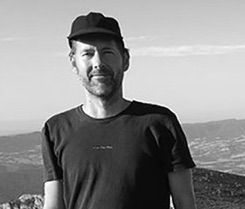
Location:
Alfred Decker’s passion in life has been ecological and social justice activism, of which permaculture has played a central part. Since his first Permaculture Design Course in 1998 in California, Alfred has been involved with social movements and projects throughout Europe and the Americas. He is an award-winning permaculture designer, a certified educator with the Permaculture Association Britain, and one of Europe’s leading permaculture educators. Alfred is the founder of the 12 Principles Permaculture Design consultancy, Permacultura Barcelona and the Forest Gardens project at Can Masdeu; is a co-founder of the Spanish Permaculture Academy (Academia de Permacultura Íbera); and was a member of the European Permaculture Teachers Partnership and the Permaculture Council of Europe. Alfred holds a post graduate diploma in sustainable architecture and renewable energy (Centre for Alternative Technology).After taking a permaculture teachers training with Rosemary Morrow in 2011, he undertook a two year mentorship and later co-taught six courses with her, ultimately earning a Diploma in Permaculture Education & Community Development in 2013 through the Blue Mountains Permaculture Institute (Australia). Committed to furthering the teachers’ training platform “Training Permaculture Teachers” (TPT) that Rosemary developed in over three decades of teaching experience around the world, Alfred co-edited her TPT manual and organised a successful crowdfunding campaign to develop the platform.In the coastal mountains of Montnegre, Catalunya, Alfred is the co-director of the community biochar project Montbio, which won a 2017 Lush Spring Prize for Social and Environmental Regeneration.

Location:
Linzy Na Nakorn is a movement director, politicised somatics practitioner, community organiser and facilitator. For the past decade she has been facilitating movement, body work and creating theatre, dance and participatory performance that advocates for and organises with communities in pursuit of housing, disability and racial justice. Her movement practice focuses on trauma-informed approaches to building resilience, capacity and joy via way of the body for personal, interpersonal and community sustainability. Linzy was a Co-Director of The Big Ride for Palestine in partnership with The Gaza Sunbirds, Native Woman Ride and Middle East Children’s Alliance; using cycling as a tool for mobilising active solidarity and in support of campaigning for the rights and self-determination of the Palestinian people. Linzy is part of a UK network of activists and artists advocating for Radical Care – supporting organisations, researchers and institutions to work towards system change in societal approaches to labour, leadership and access.

Location:
Jeroen (he/him pronouns) has been involved in grassroots social movements for more than two decades now, starting back when he was fifteen. Throughout the years the fights for “climate justice” and “migrant justice” have been consistently on top of the list of struggles that make his heart beat faster. A key transformative moment for Jeroen was reading Paulo Freire’s Pedagogy of the Oppressed. Freire’s revolutionary pedagogy gave him a language to support the creation of emancipatory learning environments, rooted in a desire for collective liberation. Jeroen has also been exploring in depth Boal’s Theatre of the Oppressed and Joanna Macy’s The Work That Reconnects among other methodologies to build his trainer’s toolkit. Inspired by the liberatory possibilities of these traditions, he started an organization with a friend, LABO vzw, based in Belgium, where he has worked as a trainer and campaigner between 2013 and 2023.

Location:
Ella brings more than 10 years’ external experience working with not for profit and community based organisations across diverse themes including: advocacy for migrant communities; local community engagement in national policy making; and structural relationships between poverty and disenfranchisement, and education and poverty. Immersed in critical theory in her early 20s she brings a holistic and questioning approach, and is passionate about systemic solutions that centre relationship and interconnection between ecology and society. A long standing member of the collective, Ella has been part of the core team since the inception of the Ulex Project. Her work bridges facilitation, developing project partnerships, governance, strategy, operations, and project and programme evaluation. She has developed and overseen more than 70 partnerships with a range of different actors across European social movements.

Location:
Alex has been facilitating courses geared towards social and personal transformation for the past 6 years. They have spent the last 10 years as a core member of the collective running the Ulex Project and has a deep experience of the integral approach we have developed. Their area of training expertise is sustainable activism and skills for developing ‘deeper resources’ for action. Their commitment to social justice and history of political activism have involved them in direct action and affinity group work focused on climate justice, anti-capitalism, queer politics and gender identity. A strong focus on the somatic dimension and embodied practice (informed by their work as a dance artist and yoga teacher) underpins both their approach.
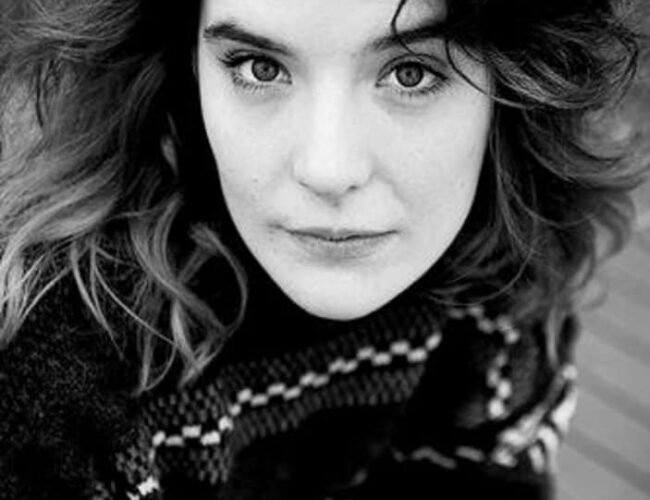
Location:
Nina (they/she) is a participatory artist, community organiser and political theatre maker. Theatre of the Oppressed has been a core part of their practice since they trained in India with Jana Sankriti in 2018. They are an artistic director of queer led theatre company, You Should see the Other Guy, who work on and off stage to tackle social injustice and make raucous musical verbatim plays. Nina has designed and delivered multiple TO training programmes in activist, community and academic settings, often combining TO with song making to collaboratively explore themes around power and identity. Their current fascination is thinking about TO as a practical manifestation of queer theory and asking: Is Theatre of the Oppressed queer?
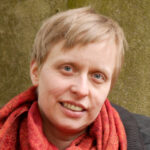
Location:
Marianne is a Holistic Security Trainer and Coach, part of the Holistic Protection Collective. She accompanies activists, human rights defenders and journalists globally. Being an activist herself, she is also a trainer for direct action and civil disobedience, and having a background as a mediator, she trains other activists how to facilitate dealing with conflicts in grassroots groups and diverse teams.
Tools for effective and sustainable activism
–
new stories: different worlds
–
Knowledge, skills and perspectives to challenge oppression and create spaces of solidarity.
–
Tools for effective and sustainable activism
–
an introduction to a holistic and transformative approach to activist training and facilitation
–
Go to the people, learn from them. Live with them. Love them. Start with what they know. Build with what they have – Lao Tzu
–
Building facilitation capacity through participatory practices.
–
a space to think critically, to ask challenging and transformative questions, and find deeper inspiration and understanding to empower social change.
–
building and strengthening regenerative praxis for BIPOC organisers.
–
Ulex: Latin (argelaga Catalan, gorse English) noun:
1. A thorny-evergreen flowering shrub, with a high capacity for regeneration and resilience. Its seedpods open in contact with fire and it reshoots from charred stumps. A successionary plant that grows well under challenging conditions. It improves soil fertility through nitrogen fixing, preparing the way for renewed biodiversity.
2. A traditional choice for igniting fires. Burns hot and bright.
3. A networked project adding nutrition and fertility to European social movements through training and capacity building. It kindles the realisation of social justice, ecological intelligence, and cognitive vitality.